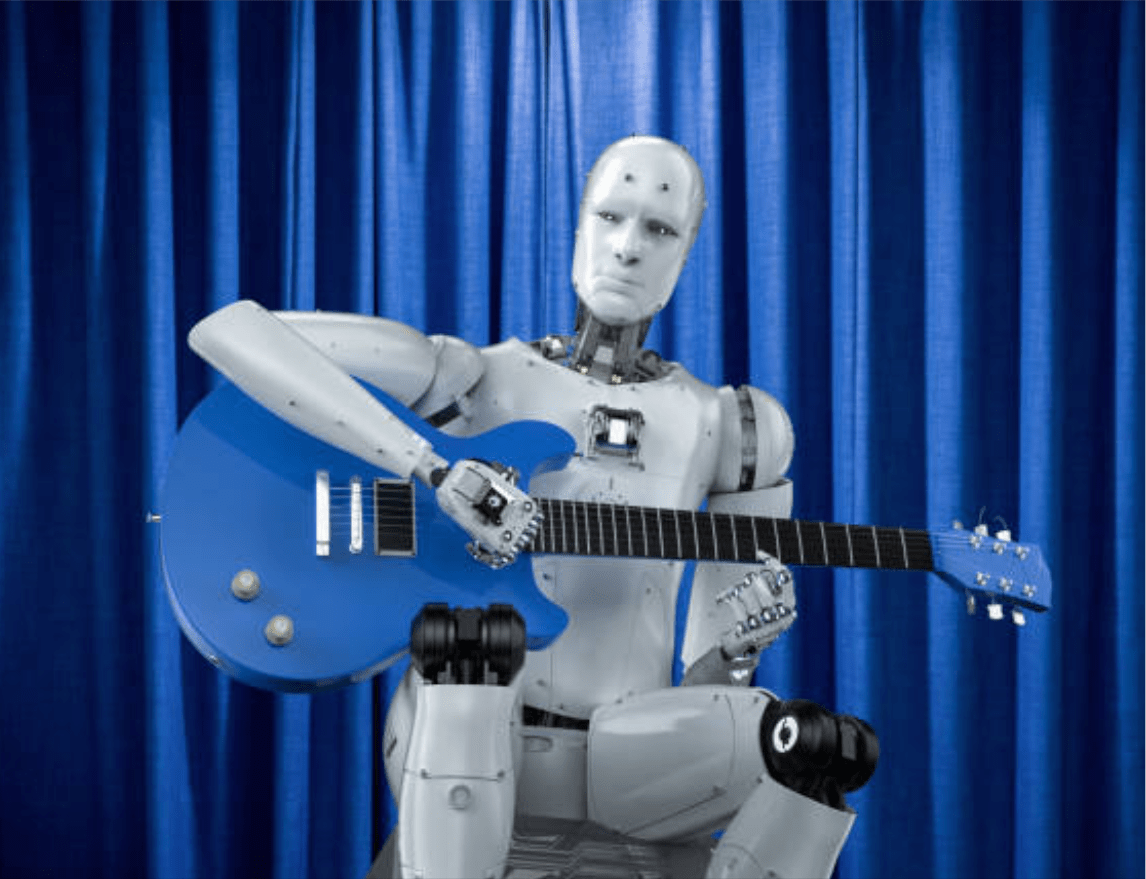
Like many other new technologies, the music industry is a guinea pig for developments in Artificial Intelligence (AI).
Across all genres, experts fear that musicians could be exploited by AI companies through improper and nonconsensual use of copyrighted music. Generative AI is simultaneously an incredible tool and an immense threat, so it’s crucial that aspiring and established musicians should know both the opportunities and risks it presents.
How is AI already used in music production?
- Stem separation
This term describes a type of extraction software that’s designed to isolate a mixed track into its distinct audio elements, also known as ‘stems’. These typically include instrumental parts, vocals, bass, and other musical components. Stem separation software presents these elements separately so they can be manipulated accordingly.
Perhaps surprisingly, Paul McCartney used AI-powered tech to produce the last ever song by the Beatles, which was extracted and repurposed from a demo.
- Compositions
AI music technologies can be used as powerful tools in composition.
Generative AI models analyse existing songs to create remixes or new pieces based on them. Given just a melody or a chorus, AI tech can subsequently provide a bassline, chords, and verses too. And when it comes to songwriting, some tools can be used for lyric generation and inspiration too.
AI tech can automate processes like audio mastering, mixing, and the generation of sound effects. This enables artists using AI-powered software to produce original, high-quality recordings that fit seamlessly into their desired genre and enhance the accuracy of production.
- Artist tools
Unsurprisingly, some artists have created or developed tools that allow them to not only harness the creative power of other artists but leverage the possibilities of AI too. The viral ‘Fake Drake’ is perhaps the most novelty AI-generated tool in music, but some are more serious.
Grimes, the award-winning electronic artist whose real name is Claire Boucher, has launched her own pilot program that allows artists to use her voice in original songs, with a 50% share of royalties. The software, named Elf.Tech, means that artists can legally create AI-generated songs professionally with Grimes’ vocals.
How is AI harming the music industry?
Growing concerns resonate over the possibility that AI technologies could harm real jobs and careers in the music industry, allowing beginners to rapidly advance in their career or create lucrative ‘viral’ hits.
Many independent musicians have struggled to recover from the effects of the Covid-19 pandemic and lockdown restrictions. A recent study by Musicians’ Union found that almost half of professional musicians in the UK earn less than £14,000 a year. Many musicians already need to supplement their earnings with a second job.
How can musicians protect themselves?
With the threat of AI-powered software allowing inexperienced artists to automate processes that previously required years of experience and specialised expertise. Along with making sure to get covered with robust insurance policies for public performances and paid session work, musicians should thoroughly research the risks of AI.
Overview
For musicians with already-established careers, AI might not pose a significant threat. However, grassroots artists – particularly those working in the electronic or house music niche – must work with caution and use the AI-powered technology to their advantage.
In the digital era, it’s an essential skill to harness but one that should be taken very seriously. With the right insurance and legal protection, musicians should safeguard their professional integrity and original recordings.



